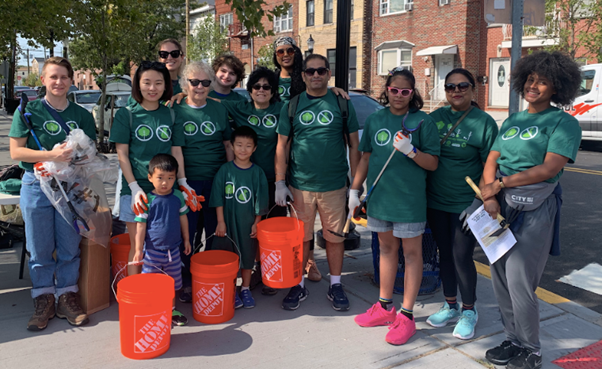Lots's of CELEBRATION ENERGY this past week around Earth Day 2014.
Will make my observation short and sweet - I observed an EXTRAORDINARY AMOUNT OF STREET LITTER AND FOOD THROWN INTO TRASH BINS as folks gathered consciously to connect about their concerns for the planet. Leaves me curious.
When folks dump their food scraps into the general waste stream, it makes it's way to a landfill; as does institutional and commercial food waste (schools, hotels, hospitals, restaurants, etc.), unless they have special carting contracts, where this separated waste stream gets brought to a special re-purposing site to be turned into soil amendments, biofuel, etc. When food waste hits landfills it decomposes and releases dangerous amounts of Methane into our air. Methane is a powerful greenhouse gas that is a major cause of air quality issues, greatly impacting escalating rates of respiratory disease, as well as accelerating climate changes, that are impacting our environment at alarming rates.
This is something we can control as human beings, and in fact, can be an ENGINE IN REVERSE ! IF . . . we move to change our ways a bit. As individuals, a small effort toward recycling food scraps at home can make a big difference. More about SJC's Community Composting / Garden Exchange initiative can be found here - http://sustainablejc.org/wordpress/projects/community-composting/
Small Business, Commercial and Institutional Partnership Matters
While urban landscapes are a bit more challenged to re-purpose their food scraps within their footprint, green corriders and open space can become beneficiaries of healthy soil amendments produced and distributed locally, also fueling the local economy by cutting down on costly carting contracts and commercial products, used to remediate / grow the green corriders in all Cities - parks, community gardens, streetscapes, school yards, institutional footprints, etc. It can even create new green economy jobs, which is what we want right ? Other Cities are doing this, and while it takes orchestrated change management and lots of community education, Jersey City can do this too.
Oh yes, wanted to mention the relationship between Composting & Stormwater Management. That is to say, once we have a commitment toward a Green Infrastructure Strategy for Jersey City, we can follow the lead of other urban centers and deploy 'high absorption' , locally grown compost, in our practices to dramatically lower runoff volume and holding capacity in rain gardens, bioswales and other bioretention systems we may install. Another example of how looking at some of our challenges from a 'whole systems' perspective, gives us the opportunity to solve multiple problems at once.
More on the impacts of food scraps / methane here -
http://epa.gov/climatechange/ghgemissions/gases/ch4.html
Fun video on what Montpelier, VT is doing; small restaurant operation meets chickens -
http://www.aljazeera.com/video/americas/2014/04/tackling-america-wasteful-lifestyle-2014418115845171972.html
My blogpost from last Sept about NJ townships on the move -
http://sustainablejc.org/wordpress/2013/09/food-waste-what-are-you-doing-about-it/








